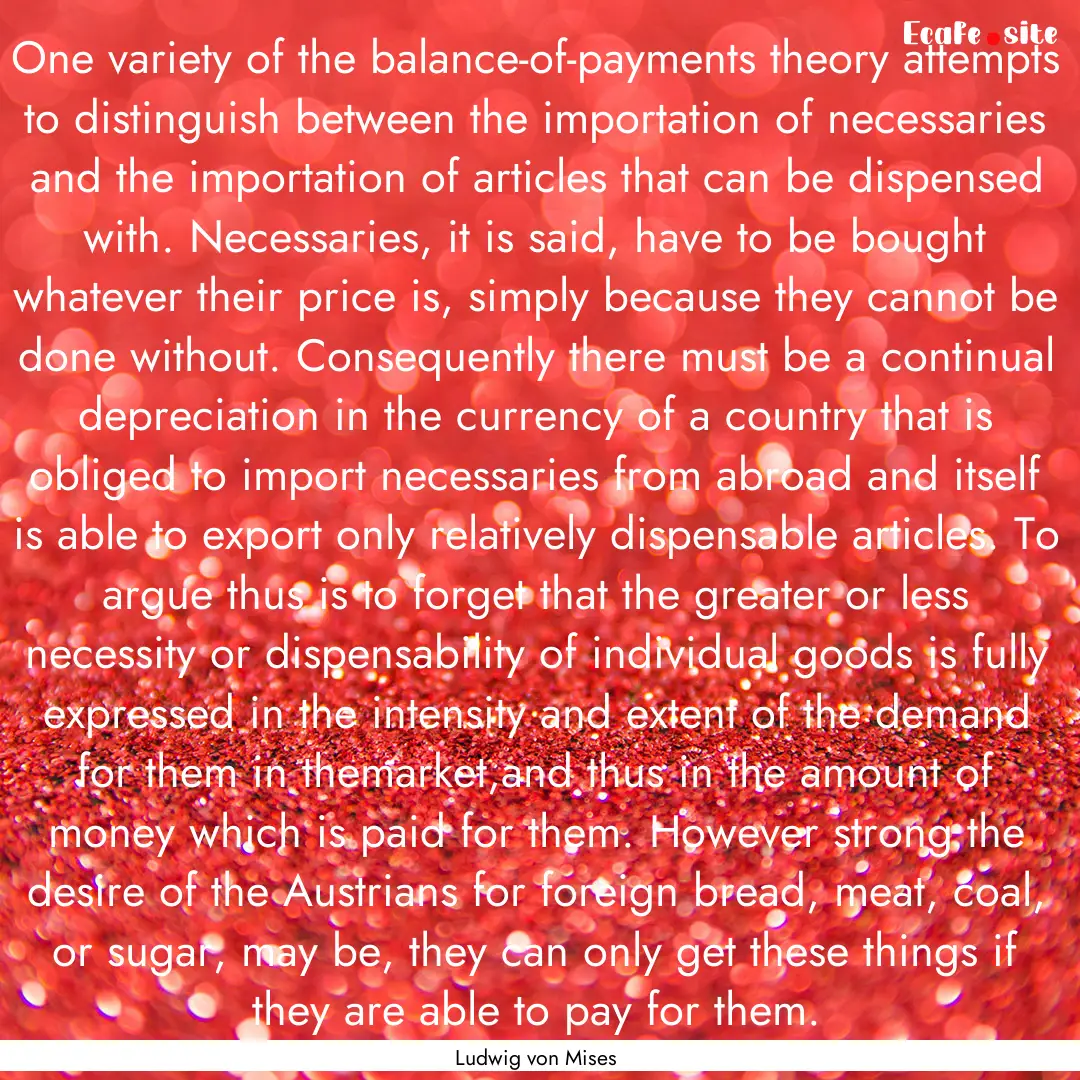
Report, if you have a problem with this page“ One variety of the balance-of-payments theory attempts to distinguish between the importation of necessaries and the importation of articles that can be dispensed with. Necessaries, it is said, have to be bought whatever their price is, simply because they cannot be done without. Consequently there must be a continual depreciation in the currency of a country that is obliged to import necessaries from abroad and itself is able to export only relatively dispensable articles. To argue thus is to forget that the greater or less necessity or dispensability of individual goods is fully expressed in the intensity and extent of the demand for them in themarket,and thus in the amount of money which is paid for them. However strong the desire of the Austrians for foreign bread, meat, coal, or sugar, may be, they can only get these things if they are able to pay for them. ”

Ludwig von Mises
From : Theory and History: An Interpretation of Social and Economic Evolution



